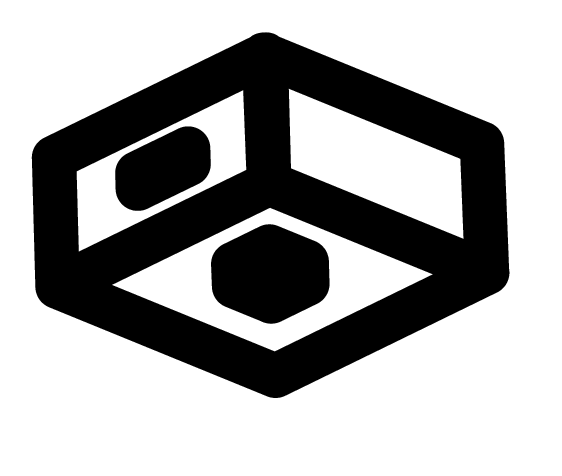How To Empower Today’s Healthcare Consumer
Co-Founder & Managing Partner of 7Wire Ventures

GETTY
I am impressed by the innovation that has occurred across the world and our healthcare ecosystem amid the challenges presented by Covid-19. The pandemic unveiled the industry’s capabilities to think differently about how consumers live their lives, access services and receive care. Covid-19 revealed the power of human determination and the accomplishments we can achieve when society is united by a common goal.
This pandemic-induced transformation has fundamentally changed how consumers interact with their health. The influx of digital health solutions has positively impacted consumers and increased options to obtain care on one’s own terms. For example, nearly 88% of Americans want to continue using telehealth beyond Covid-19, 75% of consumers view digital as important for their care and four of every five consumers favor remote patient monitoring. This drastic shift in consumer sentiment advanced in less than two years.
Consumers want to stay healthy by accessing care on their own terms. But how can we crack the code on empowering consumers to actively engage in their healthcare? In my experience working with numerous health portfolio companies at 7wireVentures, I’ve learned that proactive consumer healthcare engagement begins by leveraging a balance of technology and human touch.
When digital solutions are married with human engagement, interjected at just the right time, and paired with actionable data and information, such platforms can transform patients into "informed, connected health consumers" who proactively manage their health and well-being.
Bridge technology and human touch.
Healthcare is essentially a human business. Treating a chronic disease or sudden health event is a deeply personal and emotional experience. While technology is a transformational tool that can be leveraged to scale clinician workforces and improve how consumers receive care, ultimately digital solutions cannot replace human providers.
Purely digital solutions face an uphill battle when aiming to engage patients without human interaction. For example, patients are reluctant to use care provided by medical artificial intelligence despite the benefits such technology can bring. As such, human touch must be thoughtfully woven into new healthcare experiences to satiate one’s desire for connection with others. This, in turn, can build trust in the ability of technology to help drive better health outcomes.
As entrepreneurs build digital health solutions, leaders should strategically consider how to optimally incorporate both tech and human touch to empower consumers to proactively engage in their health. When doing so, three key consumer questions should be considered:
• Where and how can I access care?
• What does my data mean for my health?
• How much is my care going to cost?
Where and how can I access care?
Consumers need guidance in identifying and recommending where to get personalized care, from urgent care or specialty care to behavioral health. Human care navigators or coaches, augmented by technology, can play a vital role in assisting with care navigation in a cost-effective and scalable manner, maintaining the important human element of the care experience. For example, one of our portfolio companies uses a combination of software, technology, data science and health guides to help consumers better understand care options and associated costs.
When engaging patients in accessing care, digital solutions should also provide digestible resources that drive education by surfacing information to individuals at the right place and the right time. Additionally, resources must be culturally sensitive and meet the consumer via their preferred communications means (e.g., text, phone, email, application) in their native language.
Human-led care navigation and engagement solutions ensure individuals receive personalized care options that fit into their daily lives, empowering consumers with the information necessary to better access their healthcare.
What does my data mean for my health?
The connected health device market is booming as consumers buy more connected devices than ever before. While these tools increase access to one’s healthcare information, the proliferation of data these devices generate can be overwhelming for consumers without context.
Digital solutions should help consumers understand their healthcare data in a simple, digestible and actionable manner. Likewise, providers must be equipped with the new sources of longitudinal health data to obtain a holistic picture of their patients and make more informed clinical decisions. Some companies, for example, leverage connected diagnostics to deliver real-time nudges that help consumers better understand their clinical data.
When each stakeholder can seamlessly access the right clinical data, consumers are empowered to understand how their daily decisions impact their health — without turning to Dr. Google (registration required) — and work with their provider to make lifestyle or medication changes as needed.
How much is my care going to cost?
With healthcare costs continuing to rise, Americans have been forced to take drastic measures to afford their healthcare. The transparent pricing knowledge consumers have when making purchasing decisions in all other facets of their life, such as when buying groceries, a car or a home, should be replicated when making decisions about their health.
Tangibly, this means leveraging price transparency solutions or price estimates to help consumers manage their costs over time or understand upfront how much a doctor’s visit, surgery, or prescription will cost. Informed decision-making also requires easy access to resources that explain health plan benefits, regardless of health literacy level or language. Consumers need to be explained the financial implications of their care up front to help avoid surprise bills or unknown pharmacy expenses.
Now more than ever, consumers want to stay healthy by accessing care on their own terms. Accelerated by the Covid-19 pandemic, the need for digital solutions that help consumers navigate care options and understand their healthcare information and cost of care has been brought to the forefront. Digital solutions have and will continue to revolutionize the healthcare experience. However, entrepreneurs must not overlook the importance of bridging technology innovation with the human touch to transform consumers into consumers who can be stewards of their own health journies.

 Attendees
Attendees
 Sponsors and Exhibitors
Sponsors and Exhibitors
 AI In Healthcare: A Virtual Course
AI In Healthcare: A Virtual Course
 Contact us
Contact us